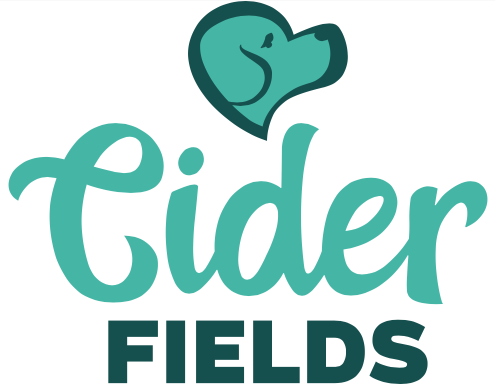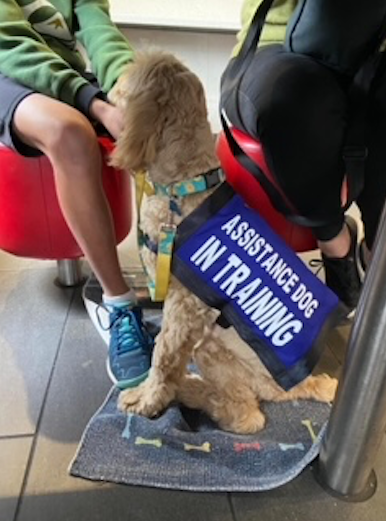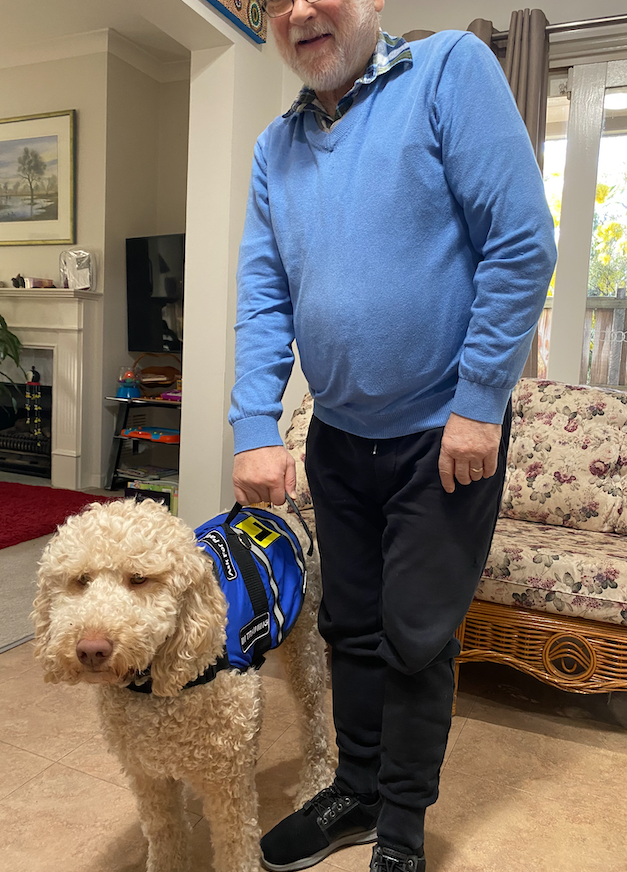Cider Fields breeds dogs specifically for different roles. Pups may be amazing in one role, but not suitable for another. Because we know the pups and their bloodlines very well, we can predict accurately which pup will work for your family.
Cider Field pups have gone on to excel in the following roles:
Companion Dogs
Companion dogs need to be affectionate, have an intuitive nature so they understand if a person needs additional attention, and they need an excellent on / off switch. This lets them wear out the children on the lawn, but then slow down and relax indoors. Whether a great companion for one person, or in a home where someone has additional needs, Cider Field dogs become integral members of their family.
Assistance Dogs
Trained for, or by a person and assessed to have the right to enter public places, through a “PAT” Public Access Test.
Examples:
Diabetic Alert, Seizure Alert and Response, Epilepsy Alert, Mobility Assistance, Seeing-Eye Dogs, Psychological support dogs who need to be with their person in public places.
Training:
It is possible for some people to train their own Assistance dog with the help of a suitably qualified trainer, and then progress to PAT testing. However, dogs being trained for service roles will often go into intensive professional training. Public Access Tests are redone annually, so it is important that dogs are
Therapy Dogs
Sometimes the owner is the trainer and handler, other times the dog is owned by an organisation. The handler will take the dog to where it is needed.
Examples:
schools, hospitals, hospices, courts, homes, police interviews with children.
Training:
Therapy dogs do not need formal qualifications, however they do need excellent levels of obedience training. The calmer nature and trainability of Cider Field labradoodles, along with not shedding, makes them excellent for this work.
Emotional Support Dogs (ESA)
Cider Field dogs can provide a calming, stabilising presence for a person with additional needs, but who may not require the dog to go through full public access testing.
Examples:
Anxiety, PTSD, Autism Spectrum, Depression or other psychological or physical challenge.
Training:
General obedience training is important, and that the dog is intuitive, connecting strongly with their person and family.
POPPY
(Paddington x Tuxedo)
We didn’t plan that Poppy would begin her therapy training but _____ accident gave her the chance to do what no pain killer could achieve !
His accident has put him in hospital and her love was what he needed .
She is such a calm loving girl and we can’t wait to get _____ home so she can continue to look after him .
Poppy can move from toddlers through to my elderly mum with such grace and calmness and she is everything we hoped for in a dog.
We thought you would enjoy seeing this photo .
Regards
GYP
Hi Sonia,
Gyp has just turned 2 and we are very proud to announce that he is coming along really well at his classes. He lies quietly when out in public and walks nicely with Martin but still has some maturing and learning to go.
I have included some photos to show you how gorgeous he is and how proud we are of him.
Cheers Pat




